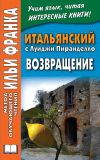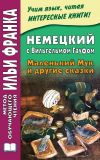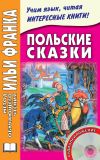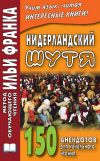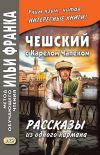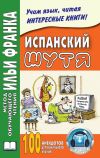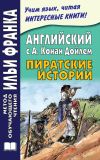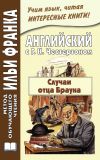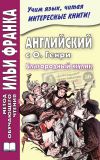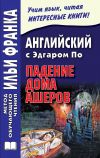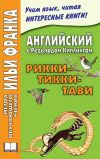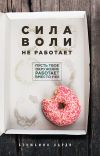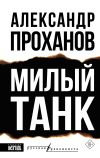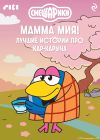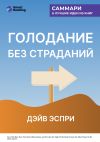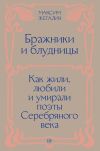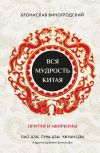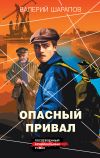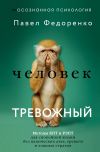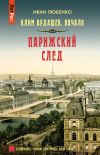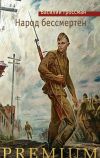Текст книги "Английский с Г. К. Честертоном. Рассказы об отце Брауне / Gilbert Keith Chesterton. The Innocence of Father Brown"

Автор книги: Гилберт Честертон
Жанр: Иностранные языки, Наука и Образование
Возрастные ограничения: +16
сообщить о неприемлемом содержимом
Текущая страница: 3 (всего у книги 13 страниц) [доступный отрывок для чтения: 3 страниц]
“Not a scrap (ничего подобного; not a scrap – ни капли; scrap – лом; бракованные детали; мизерное количество),” cried Blount, quite carried away (вскричал Блаунт, полностью увлеченный /этой идеей/). “A harlequinade’s the quickest thing we can do, for two reasons (арлекинаду устроить как раз можно очень быстро, по двум причинам). First, one can gag to any degree (во-первых, можно нести любую отсебятину; to gag – вставлять кляп; нести отсебятину, импровизировать /театр./; degree – степень; уровень); and, second, all the objects are household things – tables and towel-horses and washing baskets, and things like that (а во-вторых, на декорации сгодится всякая домашняя утварь: «а предметами /могут быть/ хозяйственные/бытовые вещи» – столы, вешалки, бельевые корзины и так далее; towel-horse – вешалка или подставка для полотенец; towel – полотенце; horse – лошадь).”
“That’s true (это верно),” admitted Crook, nodding eagerly and walking about (признал Крук, одобрительно кивнув и расхаживая /по комнате/). “But I’m afraid I can’t have my policeman’s uniform (но боюсь, мне не удастся раздобыть полицейскую форму). Haven’t killed a policeman lately (в последнее время я не убивал полисмена).”

“I’m all for making a policeman into sausages,” said John Crook. “It’s a better definition of Socialism than some recently given. But surely the get-up would be too big a business.”
“Not a scrap,” cried Blount, quite carried away. “A harlequinade’s the quickest thing we can do, for two reasons. First, one can gag to any degree; and, second, all the objects are household things – tables and towel-horses and washing baskets, and things like that.”
“That’s true,” admitted Crook, nodding eagerly and walking about. “But I’m afraid I can’t have my policeman’s uniform. Haven’t killed a policeman lately.”
Blount frowned thoughtfully a space, and then smote his thigh (Блаунт задумчиво сдвинул брови на мгновение, а затем ударил себя по бедру = по ноге; to frown – хмурить брови; thoughtfully – задумчиво; thought – мысль; space – пространство; интервал времени; to smite – ударять, бить; thigh – бедро). “Yes, we can (раздобудем: «нет, сможем»)!” he cried (воскликнул он; to cry – плакать; восклицать). “I’ve got Florian’s address here, and he knows every costumier in London (у меня есть адрес Флориана здесь /в письме/, а он знает каждого костюмера в Лондоне). I’ll phone him to bring a police dress when he comes (я позвоню, чтобы он принес /захватил/ костюм полисмена, когда поедет).” And he went bounding away to the telephone (и он заспешил к телефону; to bound – скакать; быстро бежать).
“Oh, it’s glorious, godfather (ах, как великолепно, крестный),” cried Ruby, almost dancing (воскликнула Руби, она была готова заплясать от радости: «почти танцуя»). “I’ll be columbine and you shall be pantaloon (я буду Коломбиной, а вы – Панталоне).”
The millionaire held himself stiff with a sort of heathen solemnity (миллионер замер натянуто как в языческой торжественности = выпрямился и замер как языческое божество; to hold oneself – держаться; вести себя; stiff – натянутый; непреклонный; heathen – языческий; solemnity – церемониал; торжественность). “I think, my dear (я полагаю, моя дорогая),” he said, “you must get someone else for pantaloon (вам следует найти кого-нибудь другого на роль Панталоне).”
“I will be pantaloon, if you like (я буду Панталоне, если хотите),” said Colonel Adams, taking his cigar out of his mouth, and speaking for the first and last time (сказал полковник Адамс, вынув сигару изо рта и заговорив в первый и последний раз /во время разговора/).

Blount frowned thoughtfully a space, and then smote his thigh. “Yes, we can!” he cried. “I’ve got Florian’s address here, and he knows every costumier in London. I’ll phone him to bring a police dress when he comes.” And he went bounding away to the telephone.
“Oh, it’s glorious, godfather,” cried Ruby, almost dancing. “I’ll be columbine and you shall be pantaloon.”
The millionaire held himself stiff with a sort of heathen solemnity. “I think, my dear,” he said, “you must get someone else for pantaloon.”
“I will be pantaloon, if you like,” said Colonel Adams, taking his cigar out of his mouth, and speaking for the first and last time.
“You ought to have a statue (вам нужно поставить памятник /за это/),” cried the Canadian, as he came back, radiant, from the telephone (воскликнул канадец, с сияющим лицом: «сияющий», вернувшись от телефона). “There, we are all fitted (ну вот, все готово; to fit – подходить; соответствовать). Mr. Crook shall be clown (мистер Крук будет клоуном); he’s a journalist and knows all the oldest jokes (он журналист и знает все устаревшие: «самые старые» шутки). I can be harlequin (я могу быть Арлекином), that only wants long legs and jumping about (для этого нужны только длинные ноги и /умение/ прыгать повсюду). My friend Florian ’phones he’s bringing the police costume (мой друг Флориан сказал мне сейчас по телефону, что привезет костюм полисмена); he’s changing on the way (он переоденется по дороге). We can act it in this very hall (мы можем играть прямо в этом холле), the audience sitting on those broad stairs opposite (зрители будут сидеть напротив на широкой лестнице), one row above another (один ряд выше другого). These front doors can be the back scene (эти входные двери могут быть задней сценой), either open or shut (либо открытыми, либо закрытыми). Shut, you see an English interior (/если/ закрыть, вы увидите внутреннюю часть английского дома: «английский интерьер»). Open, a moonlit garden (/если/ открыть – сад, освещенный луной). It all goes by magic (все идет как по волшебству).” And snatching a chance piece of billiard chalk from his pocket (и, вытащив: «выхватив» из кармана кусок мела, случайно захваченный из бильярдной: «случайный кусок мела»), he ran it across the hall floor (он провел им по полу холла; to run), half-way between the front door and the staircase (посередине между входной дверью и лестницей), to mark the line of the footlights (чтобы отметить линию рампы = отделить сцену).

“You ought to have a statue,” cried the Canadian, as he came back, radiant, from the telephone. “There, we are all fitted. Mr. Crook shall be clown; he’s a journalist and knows all the oldest jokes. I can be, that only wants long legs and jumping about. My friend Florian ‘phones he’s bringing the police costume; he’s changing on the way. We can act it in this very hall, the audience sitting on those broad stairs opposite, one row above another. These front doors can be the back scene, either open or shut. Shut, you see an English interior. Open, a moonlit garden. It all goes by magic.” And snatching a chance piece of billiard chalk from his pocket, he ran it across the hall floor, half-way between the front door and the staircase, to mark the line of the footlights.
How even such a banquet of bosh was got ready in the time remained a riddle (как даже такое дурацкое представление было подготовлено вовремя, остается загадкой; bosh – глупость; чушь; to get ready – собираться; подготавливать; riddle – загадка). But they went at it with that mixture of recklessness and industry (но они принялись за дело с той смесью безрассудства и старания; mixture – перемешивание; смесь; reckless – необдуманный, безрассудный; industry – промышленность; производство; прилежание; старание) that lives when youth is in a house (которое возникает: «живет», когда в доме присутствует: «есть» юность); and youth was in that house that night (а той ночью в /том/ доме была юность), though not all may have isolated the two faces and hearts from which it flamed (хотя не все, вероятно, могли определить: «выделить» два лица и два сердца, от которых она /юность/ загорелась; though – хотя; to isolate – изолировать; отделять; выделять; to flame – пылать; гореть; вспыхнуть). As always happens (как всегда бывает), the invention grew wilder and wilder (выдумка становилась все безрассуднее и безрассуднее; invention – изобретение; выдумка; to grow – расти; увеличиваться; wild – дикий; бурный; безудержный) through the very tameness of the bourgeois conventions from which it had to create (при всей буржуазной благонравности ее происхождения: «при всей прирученности буржуазных условностей, на /основе которых/ она /выдумка/ должна была творить»; tameness – прирученность; convention – съезд; соглашение; обычай; условность; to create – создавать; творить). The columbine looked charming in an outstanding skirt that strangely resembled the large lamp-shade in the drawing-room (Коломбина выглядела очаровательно в своей необыкновенной юбке, удивительно напоминавшей большой абажур в гостиной; outstanding – выдающийся; незаурядный; первоклассный; to resemble – походить, иметь сходство; lamp-shade – абажур; shade – тень). The clown and pantaloon made themselves white with flour from the cook (Клоун и Панталоне набелили себе лица мукой, взятой у повара: «придали себе белый цвет мукой от повара»; flour – мука; cook – повар), and red with rouge from some other domestic (и накрасили щеки румянами, тоже позаимствованными у кого-то из домашних: «от каких-то других домашних»; rouge – румяна), who remained (like all true Christian benefactors) anonymous (пожелавших (как и подобает истинным благодетелям-христианинам) остаться неизвестными; to remain – оставаться; true – верный; правильный; истинный; benefector – благодетель).

How even such a banquet of bosh was got ready in the time remained a riddle. But they went at it with that mixture of recklessness and industry that lives when youth is in a house; and youth was in that house that night, though not all may have isolated the two faces and hearts from which it flamed. As always happens, the invention grew wilder and wilder through the very tameness of the bourgeois conventions from which it had to create. The columbine looked charming in an outstanding skirt that strangely resembled the large lamp-shade in the drawing-room. The clown and pantaloon made themselves white with flour from the cook, and red with rouge from some other domestic, who remained (like all true Christian benefactors) anonymous.
The harlequin, already clad in silver paper out of cigar boxes (Арлекину, уже одетому в /костюм/ из серебряной бумаги, /извлеченной/ из сигарных ящиков; to clothe – одевать; silver – серебряный; серебристый; box – коробка; ящик) was, with difficulty, prevented from smashing the old Victorian lustre chandeliers (с большим трудом удалось помешать разбить старинную викторианскую /хрустальную/ люстру с подвесками; to prevent – предотвращать; мешать; to smash – разбивать; luster – украшение-подвеска; chandelier – люстра) that he might cover himself with resplendent crystals (чтобы украситься ее сверкающими подвесками: «кристаллами»; resplendent – блестящий; сверкающий). In fact he would certainly have done so (вообще-то, он наверняка бы сделал это), had not Ruby unearthed some old pantomime paste jewels (если бы Руби не обнаружила какие-то старые поддельные украшения; to unearth – выкапывать; извлекать; обнаруживать; paste – материал для изготовления стразов /поддельных алмазов/; jewel – драгоценный камень; ювелирное изделие) she had worn at a fancy dress party as the Queen of Diamonds (которые она когда-то надевала на маскараде /в костюме/ бубновой дамы; to wear – носить; fancy dress – маскарадный костюм; queen – королева; diamonds – бубны /карт./). Indeed, her uncle, James Blount, was getting almost out of hand in his excitement (даже ее дядя, Джеймс Блаунт, так разошелся: «почти вышел из-под контроля в своем возбуждении»; excitement – возбуждение; волнение); he was like a schoolboy (он вел себя как школьник; schoolboy – ученик; школьник). He put a paper donkey’s head unexpectedly on Father Brown (он неожиданно надел бумажную ослиную голову на отца Брауна; donkey – осел; ослица; unexpectedly – внезапно; неожиданно), who bore it patiently (который снес это терпеливо; to bear – носить, нести; переносить), and even found some private manner of moving his ears (и даже нашел какой-то секретный способ шевелить ушами; even – даже; to find – находить). He even essayed to put the paper donkey’s tail to the coat-tails of Sir Leopold Fischer (он даже сделал также попытку прицепить ослиный хвост к фалдам сэра Леопольда Фишера; to essay – испытывать; пробовать; to put – класть; помещать; приделывать; tail – хвост; coat-tail – фалда). This, however, was frowned down (это, однако, было остановлено гневным взглядом; to frown down – заставить замолчать взглядом; усмирить гневным взглядом). “Uncle is too absurd (дядя уж чересчур разошелся: «слишком нелеп/смешон),” cried Ruby to Crook, round whose shoulders she had seriously placed a string of sausages (воскликнула = сказала Руби Круку, с серьезным видом вешая ему на шею: «плечи» связку сосисок; shoulder – плечо; string – веревка; струна; нитка). “Why is he so wild (почему он ведет себя так безрассудно: «почему он так безрассуден»; wild – дикий; неконтролируемый; безудержный)?”

The harlequin, already clad in silver paper out of cigar boxes, was, with difficulty, prevented from smashing the old Victorian lustre chandeliers, that he might cover himself with resplendent crystals. In fact he would certainly have done so, had not Ruby unearthed some old pantomime paste jewels she had worn at a fancy dress party as the Queen of Diamonds. Indeed, her uncle, James Blount, was getting almost out of hand in his excitement; he was like a schoolboy. He put a paper donkey’s head unexpectedly on Father Brown, who bore it patiently, and even found some private manner of moving his ears. He even essayed to put the paper donkey’s tail to the coat-tails of Sir Leopold Fischer. This, however, was frowned down. “Uncle is too absurd,” cried Ruby to Crook, round whose shoulders she had seriously placed a string of sausages. “Why is he so wild?”
“He is harlequin to your columbine (он Арлекин для вашей Колумбины),” said Crook. “I am only the clown who makes the old jokes (а я только клоун, который повторяет: «делает» старые шутки).”
“I wish you were the harlequin (жаль, что вы не Арлекин),” she said, and left the string of sausages swinging (сказала она и оставила связку сосисок висеть /у него на шее/; to leave).
“He is harlequin to your columbine,” said Crook. “I am only the clown who makes the old jokes.”
“I wish you were the harlequin,” she said, and left the string of sausages swinging.
Father Brown, though he knew every detail done behind the scenes (отец Браун, хотя и знал в подробностях, все что происходило за сценой: «знал каждую деталь, сделанную за сценой»), and had even evoked applause by his transformation of a pillow into a pantomime baby (и даже вызвал аплодисменты за превращение подушки в младенца /для представления/; to evoke – пробуждать; вызывать; pillow – подушка), went round to the front and sat among the audience with all the solemn expectation of a child at his first matinee (обошел /сцену/ кругом и сел среди зрителей с выражением торжественного ожидания, словно ребенок на первом дневном представлении; to the front – вперед; to expect – ждать; ожидать; matinee – утренний или дневной спектакль/представление). The spectators were few, relations, one or two local friends, and the servants (зрителей было мало, родственники, один – двое соседей и слуги; spectator – наблюдатель; очевидец; зритель; relation – отношение; связь; родственник; родственница); Sir Leopold sat in the front seat (сэр Леопольд сел в переднем ряду: «на переднее сиденье»; to sit), his full and still fur-collared figure largely obscuring the view of the little cleric behind him (его полная фигура – к тому же он все еще был в пальто с меховым воротником – почти совсем загородила сцену маленькому священнику позади него; collar – воротник; to obscure – затемнять; загораживать; cleric – духовное лицо); but it has never been settled by artistic authorities whether the cleric lost much (но театральная критика: «артистические власти/инстанции» так и не определили, много ли потерял священник; to settle – урегулировать; решить; принять решение; to lose).

Father Brown, though he knew every detail done behind the scenes, and had even evoked applause by his transformation of a pillow into a pantomime baby, went round to the front and sat among the audience with all the solemn expectation of a child at his first matinee. The spectators were few, relations, one or two local friends, and the servants; Sir Leopold sat in the front seat, his full and still fur-collared figure largely obscuring the view of the little cleric behind him; but it has never been settled by artistic authorities whether the cleric lost much.
The pantomime was utterly chaotic, yet not contemptible (пантомима была совершенно хаотичной, но не недостойной = не лишенной достоинств; chaotic – беспорядочный; хаотичный; yet – однако; тем не менее; contemptible – презренный; недостойный); there ran through it a rage of improvisation which came chiefly from Crook the clown (она была пронизана буйством импровизации: «красной нитью в ней /пантомиме/ пробегало вдохновение импровизации», исходившей в основном от клоуна Крука; to run through – проходить красной нитью; rage – ярость; неистовство; вдохновение; воодушевление; to come). Commonly he was a clever man (как правило, он был рассудительным человеком; clever – умный; талантливый; рассудительный), and he was inspired tonight with a wild omniscience, a folly wiser than the world (а сегодня вечером он был вдохновлен безудержным всеведением, безумие более мудрое, чем мир; inspiration – вдохновение; wild – дикий; необитаемый; безудержный; omniscience – всеведение; folly – глупость; безрассудство; безумие; wise – мудрый; world – мир), that which comes to a young man who has seen for an instant a particular expression on a particular face (/это чувство/, которое приходит к молодому человеку, когда он на какой-то миг уловит: «увидит» некое: «определенное» выражение на некоем: «определенном» лице; for an instant – на какое-то мгновение). He was supposed to be the clown, but he was really almost everything else (он должен был быть клоуном, но он практически был всем; to suppose – полагать; предполагать; подразумевать), the author (автором) (so far as there was an author) (если тут вообще мог быть автор), the prompter (суфлером), the scene-painter (декоратором), the scene-shifter (рабочим сцены), and, above all, the orchestra (и, прежде всего, оркестром; above all – главным образом, прежде всего). At abrupt intervals in the outrageous performance (во время кратких перерывов этого странного представления; outrageous – возмутительный; странный) he would hurl himself in full costume at the piano and bang out some popular music equally absurd and appropriate (он в клоунском наряде: «полном маскарадном костюме» бросался к пианино и громко исполнял: «тарабанил» популярные мелодии: «музыку», одновременно нелепые и соответствующие /случаю/; absurd – нелепый; appropriate – подходящий; соответствующий).

The pantomime was utterly chaotic, yet not contemptible; there ran through it a rage of improvisation which came chiefly from Crook the clown. Commonly he was a clever man, and he was inspired tonight with a wild omniscience, a folly wiser than the world, that which comes to a young man who has seen for an instant a particular expression on a particular face. He was supposed to be the clown, but he was really almost everything else, the author (so far as there was an author), the prompter, the scene-painter, the scene-shifter, and, above all, the orchestra. At abrupt intervals in the outrageous performance he would hurl himself in full costume at the piano and bang out some popular music equally absurd and appropriate.
The climax of this, as of all else (кульминационным пунктом этого /спектакля/, а также всего остального; climax – наивысшая точка; кульминация), was the moment when the two front doors at the back of the scene flew open (было мгновение, когда две двери на заднем плане сцены вдруг распахнулись; to fly – лететь; to fly open – распахиваться), showing the lovely moonlit garden (и зрители увидели: «показав» прекрасный сад, залитый лунным светом), but showing more prominently the famous professional guest (на фоне которого отчетливо вырисовывалась фигура знаменитого гостя профессионала: «показав более отчетливо знаменитое профессиональное приглашенное лицо»; guest – гость; приглашенное лицо); the great Florian, dressed up as a policeman (великого Флориана, одетого как полицейский). The clown at the piano played the constabulary chorus in the “Pirates of Penzance” (клоун за пианино заиграл хор полицейских из /комической оперы/ «Пираты из Пензанса»), but it was drowned in the deafening applause (но он потонул в оглушительных аплодисментах; to drown – тонуть; to deafen – оглушать), for every gesture of the great comic actor was an admirable though restrained version of the carriage and manner of the police (каждый жест великого актера-комика был замечательной, хотя и сдержанной, интерпретацией осанки и манеры /держаться/ полицейских; to restrain – сдерживать; version – версия; интерпретация; carriage – коляска; карета; осанка; manner – способ; метод; манера; поведение; police – полиция; the police – полицейские).

The climax of this, as of all else, was the moment when the two front doors at the back of the scene flew open, showing the lovely moonlit garden, but showing more prominently the famous professional guest; the great Florian, dressed up as a policeman. The clown at the piano played the constabulary chorus in the “Pirates of Penzance,” but it was drowned in the deafening applause, for every gesture of the great comic actor was an admirable though restrained version of the carriage and manner of the police.
The harlequin leapt upon him and hit him over the helmet (Арлекин подпрыгнул к нему и ударил его по каске; to leap – прыгать; скакать); the pianist playing “Where did you get that hat?” he faced about in admirably simulated astonishment (пианист играл «Где ты раздобыл такую шляпу?», а он только поворачивался кругом, превосходно изображая изумление: «в превосходно имитированном изумлении»; to face about – поворачиваться кругом; admirable – восхитительный; превосходный; to simulate – симулировать; имитировать; astonishment – изумление), and then the leaping harlequin hit him again (затем скачущий Арлекин = затем Арлекин подпрыгнул еще раз и снова ударил его) (the pianist suggesting a few bars of “Then we had another one”) (пианист наиграл: «предложил» несколько тактов из песенки «Потом еще разок»; bar – брусок; кусок; планка; такт). Then the harlequin rushed right into the arms of the policeman and fell on top of him, amid a roar of applause (затем Арлекин бросился прямо в объятия полицейского и навалился на него, под бурные аплодисменты; to fall – падать; to fall on – бросаться; наваливаться; нападать; amid – посреди; roar – рев; грохот; applause – аплодисменты). Then it was that the strange actor gave that celebrated imitation of a dead man (и тогда-то этот странный актер показал знаменитую имитацию мертвого человека; celebrated – знаменитый; dead – мертвый), of which the fame still lingers round Putney (память: «слава» о которой все еще сохраняется в окрестностях: «вокруг» Патни). It was almost impossible to believe that a living person could appear so limp (было практически невозможно поверить, что живой человек мог быть таким обмякшим; possible – вероятный; возможный; to appear – появляться; казаться; limp – мягкий; обмякший).

The harlequin leapt upon him and hit him over the helmet; the pianist playing “Where did you get that hat?” he faced about in admirably simulated astonishment, and then the leaping harlequin hit him again (the pianist suggesting a few bars of “Then we had another one”). Then the harlequin rushed right into the arms of the policeman and fell on top of him, amid a roar of applause. Then it was that the strange actor gave that celebrated imitation of a dead man, of which the fame still lingers round Putney. It was almost impossible to believe that a living person could appear so limp.
The athletic harlequin swung him about like a sack or twisted or tossed him like an Indian club (Арлекин – атлет: «атлетический Арлекин» раскачивал его, как мешок, или крутил и подбрасывал его, как булаву; to swing; sack – куль; мешок; to twist – крутить; to toss – бросать; Indian club – булава /спорт./); all the time to the most maddeningly ludicrous tunes from the piano (и все это под безумно смешные мелодии фортепьяно; maddeningly – раздражающе; безумно; ludicrous – курьезный; нелепый; смешной). When the harlequin heaved the comic constable heavily off the floor (когда Арлекин с трудом оторвал от пола /тело/ комика-констебля; to heave – поднимать), the clown played “I arise from dreams of thee” (клоун заиграл «Я восстаю от снов о тебе»; to arise – возникать; появляться; происходить; воскресать; восставать /поэт./; dream – сон; мечта; thee – тебе /уст./). When he shuffled him across his back (когда он взвалил его себе на спину; to shuffle – откладывать в сторону; шаркать; перемещать), “With my bundle on my shoulder (/послышалась мелодия/ «С котомкой/вязанкой за плечами»),” and when the harlequin finally let fall the policeman with a most convincing thud (а когда Арлекин наконец позволил упасть полицейскому с самым убедительным стуком; to convince – убеждать, уверять; thud – глухой звук, стук /от падения тяжелого предмета/), the lunatic at the instrument struck into a jingling measure (безумец за инструментом заиграл с бряцающим ритмом; to strike – ударять; нажимать /клавиши/; to jingle – звенеть; бренчать; бряцать; measure – мера; степень; единица измерения; такт) with some words which are still believed to have been, “I sent a letter to my love and on the way I dropped it (с такими, как полагают и по сей день, словами «Я написал: «отправил» письмо любимой и по дороге выбросил»; to send; to drop – капать; ронять; бросать).”

The athletic harlequin swung him about like a sack or twisted or tossed him like an Indian club; all the time to the most maddeningly ludicrous tunes from the piano. When the harlequin heaved the comic constable heavily off the floor the clown played “I arise from dreams of thee.” When he shuffled him across his back, “With my bundle on my shoulder,” and when the harlequin finally let fall the policeman with a most convincing thud, the lunatic at the instrument struck into a jingling measure with some words which are still believed to have been, “I sent a letter to my love and on the way I dropped it.”
At about this limit of mental anarchy Father Brown’s view was obscured altogether (примерно в это время умственной анархии сцена была целиком скрыта от отца Брауна; limit – граница; рубеж; предел; mental – интеллектуальный; умственный; anarchy – анархия; беззаконие; беспорядок; to obscure – затемнять; загораживать; мешать /обзору/; altogether – вполне; всецело); for the City magnate in front of him rose to his full height and thrust his hands savagely into all his pockets (так как магнат из Сити перед ним встал в полный рост и стал яростно шарить по карманам: «засунул руки во все свои карманы»; to rise; height – высота; рост; high – высокий; to thrust – колоть; толкать; засовывать). Then he sat down nervously, still fumbling, and then stood up again (затем он нервно сел обратно, все еще /что-то/ ощупывая, затем снова встал; to fumble). For an instant it seemed seriously likely that he would stride across the footlights (в какой-то момент показалось, что он перешагнет через рампу /на сцену/; to stride – шагать /большими шагами/); then he turned a glare at the clown playing the piano (затем он посмотрел на играющего за пианино клоуна; glare – пристальный или сердитый взгляд); and then he burst in silence out of the room (и выбежал молча из зала; to burst – лопаться; to burst out – выбегать /мгновенно/, сбегать; silence – тишина; молчание).

At about this limit of mental anarchy Father Brown’s view was obscured altogether; for the City magnate in front of him rose to his full height and thrust his hands savagely into all his pockets. Then he sat down nervously, still fumbling, and then stood up again. For an instant it seemed seriously likely that he would stride across the footlights; then he turned a glare at the clown playing the piano; and then he burst in silence out of the room.
The priest had only watched for a few more minutes the absurd but not inelegant dance of the amateur harlequin over his splendidly unconscious foe (священник наблюдал еще в течение нескольких минут этот нелепый, но не лишенный грациозности, танец любителя-арлекина над бесчувственным телом его противника: «над великолепно бессознательным противником»; amateur – любитель; splendid – роскошный; великолепный; unconscious – неосознающий; без сознания; foe – враг; противник). With real though rude art (с подлинным, хотя и грубоватым мастерством; art – искусство; мастерство), the harlequin danced slowly backwards out of the door into the garden (Арлекин медленно танцевал, постепенно направляясь из дверей в сад), which was full of moonlight and stillness (который был наполнен лунным светом и тишиной; stillness – неподвижность; спокойствие; тишина). The vamped dress of silver paper and paste (его одеяние, сооруженное на скорую руку из серебристой бумаги и клея; to vamp – чинить; переделывать/мастерить из старья; paste – клей), which had been too glaring in the footlights (чересчур сверкавшее в огнях рампы), looked more and more magical and silvery as it danced away under a brilliant moon (выглядело все более и более волшебным и серебристым по мере того, как он удалялся: «как оно /одеяние/ удалялось», танцуя в искрящемся свете луны; brilliant – искрящийся). The audience was closing in with a cataract of applause (зрители под конец устроили гром аплодисментов; cataract – водопад; поток), when Brown felt his arm abruptly touched, and he was asked in a whisper to come into the colonel’s study (в это время отец Браун почувствовал, что кто-то неожиданно коснулся его руки, и его шепотом попросили пройти в кабинет полковника; to feel; to ask – спрашивать; /по/просить; in a whisper – шепотом).
Внимание! Это не конец книги.
Если начало книги вам понравилось, то полную версию можно приобрести у нашего партнёра - распространителя легального контента. Поддержите автора!